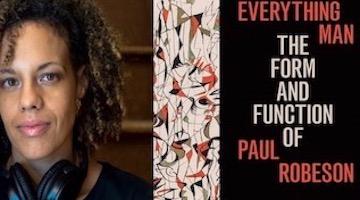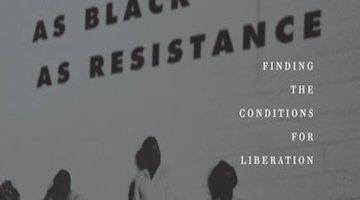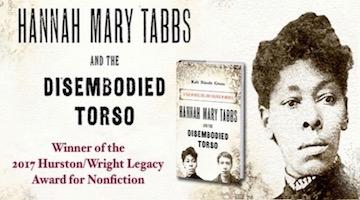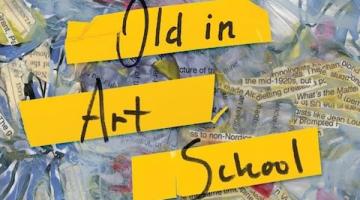“Concepts of able-mindedness are historically based within gender and racial norms of masculinity and whiteness—with damaging and deadly results for black people.”
In this series, we ask acclaimed authors to answer five questions about their book. This week’s featured author is Sami Schalk. Schalk is Assistant Professor of Gender and Women's Studies at the University of Wisconsin-Madison. Her book is Bodyminds Reimagined: (Dis)ability, Race, and Gender in Black Women’s Speculative Fiction.
Roberto Sirvent: How can your book help BAR readers understand the current political and social climate?
Sami Schalk: As the title Bodyminds Reimagined: (Dis)ability, Race, and Gender in Black Women’s Speculative Fiction suggests, my book focuses on black women’s speculative fiction so it primarily charts the increased diversity and politicization within that genre in regard to (dis)ability, race, and gender, but each chapter also engages some larger social and political issues. For example, Chapter Two analyzes Phyllis Alesia Perry’s Sitgmata in regard to the role of race, disability, and gender identities in the social construction of able-mindedness in psychiatric practices as well as within the everyday world. In the conclusion, I write specifically about how the social construction of able-mindedness I trace in the chapter relates to police brutality against black people because concepts of able-mindedness are historically based within gender and racial norms of masculinity and whiteness—with damaging and deadly results for black people. My hope is that Bodyminds Reimagined shows how speculative fiction can help us to rethink what we already know about our world and imagine alternatives. The book demonstrates how black women’s speculative fiction in particular uses non-realistic genre tropes to challenge readers’ thinking around systems of oppression in ways that directly relate to and comment upon the current political and social climate. After all, most days it feels like we’re living in a dystopian science fiction novel…
What do you hope activists and community organizers will take away from reading your book?
I hope that activists and organizers, especially those already fans of black or feminist speculative fiction, can read Bodyminds Reimagined and use it to shift their understanding of the relationship of blackness and disability. I firmly believe that anti-racist activists and allies need strong understandings of how deeply entwined racism and ableism have been and continue to be in the United States historically and contemporarily. Without grasping the mutual constitution of these systems of oppression, especially how ableism shores up racism and impacts even non-disabled people of color, anti-racist activism will continue to, on some level, perpetuate one oppression in the fight against another. I am continuing to explore this area in my next book project as well. I am deeply invested in finding ways to use my research in ways that benefit and inform people outside of the academy as well as within. As a disability studies scholar, accessibility, in all of its meanings, is very important to me so I sought to write a book that is understandable to a wide and interdisciplinary audience: one with accessible language, direct, clear sentences, and lots of footnotes to further explain concepts or point readers from different spaces in the direction of additional scholarship.
We know readers will learn a lot from your book, but what do you hope readers will un-learn? In other words, is there a particular ideology you’re hoping to dismantle?
I hope that readers unfamiliar with disability studies will unlearn some assumptions about disability. Despite the incredible strides black communities and organizers have made around issues of gender and sexuality, disability is still often left out of the picture for leaders in black communities, activist groups, and organizations. Part of this has to do with the ways disability has been used against us for so long and many want to distance themselves from disability, but as I said in my last answer, without addressing ableism within our communities and our work, we will not be able to fully dismantle racist systems which rely on ableist tropes and ideologies. I also hope that readers already familiar with disability studies will unlearn some of the theoretical and methodological assumptions which have been made in the field previously, especially within literary disability studies where so much of the foundational scholarship developed theories based almost exclusively on white British and American texts—with the occasional exception of work by Toni Morrison or Audre Lorde. The field of critical race disability studies and black disability studies in particular is quickly growing and changing the way we analyze and think about these categories independently as well as intersectionally at the site of the lived experiences and histories of disabled people of color.
Who are the intellectual heroes that inspire your work?
I have so many! In disability studies I am a great admirer of Alison Kafer, Nirmala Erevelles, Ellen Samuels, and Julie Avril Minich. In black feminist theory I frequently return to the work of Barbara Christian, Cheryl Wall, Mahdu Dubey, and Audre Lorde. Right now, with the very new nature of critical race disability studies, I am also often inspired by some of my junior scholar peers who are doing cutting edge work bringing together these fields. I am particularly fond of Jina B. Kim, Akemi Nishida, Jess Waggoner, and Moya Bailey. I would also say that my undergraduate mentor, Dr. Kathy McMahon-Klosterman, is one of my biggest intellectual and pedagogical heroes. She taught me to be critical, thoughtful, and unflinching in my analyses and I channel her regularly in my classroom. I would have never discovered disability studies without her. Lastly, Octavia E. Butler is a major intellectual hero for me. I got to spend a month in her papers at the Huntington Library as I worked on the book and I learned so much about who she was as a writer and a human being. She was so fierce in her beliefs and so dedicated to her writing. She read and researched so much in order to develop her narratives and seeing that has made me only admire her and appreciate her work even further. She was a fascinating person and I look forward to seeing all the incredible work on her that will begin to emerge now that her papers are available to scholars through the Huntington.
In what way does your book help us imagine new worlds?
Oh my goodness, in all the ways! Bodyminds Reimagined is literally about imagining new words, new ways of being, new social structures, and new modes of relationality through the non-realist imaginative worlds of black women’s speculative fiction. I work hard in the book to not only expose readers to wonderful novels (several of which have rarely been written about in scholarly contexts thus far), but also to guide my audience in exploring the ways the texts encourage us to think about and interpret categories of (dis)ability, race, gender, and sexuality differently as well. Books alone don’t change the world, but books, academic and creative alike, can influence individual thoughts and behaviors in ways that can definitely impact larger society. Speculative fiction is often unfairly dismissed as juvenile or purely escapist fluff, as not as serious, important or literary as realist or non-fiction writing, but the genre is so diverse and increasingly politicized as more people of color, feminists, queer and disabled people are writing within the genre. It’s no longer just white guys going to space and facing aliens. As we’ve seen recently with the powerful release, widespread impact, and incredible success of Black Panther, non-realist representations can have meaning and influence in our real world, often in ways that realist and non-fictional work cannot. By removing us from reality and defamiliarizing our world, speculative fiction engages our minds in distinctly different ways that are worth exploring by people from all walks of life.
Roberto Sirvent is Professor of Political and Social Ethics at Hope International University in Fullerton, CA. He also serves as the Outreach and Mentoring Coordinator for the Political Theology Network. He’s currently writing a book with fellow BAR contributor Danny Haiphong called American Exceptionalism and American Innocence: Essays on Race, Empire, and Historical Memory.















